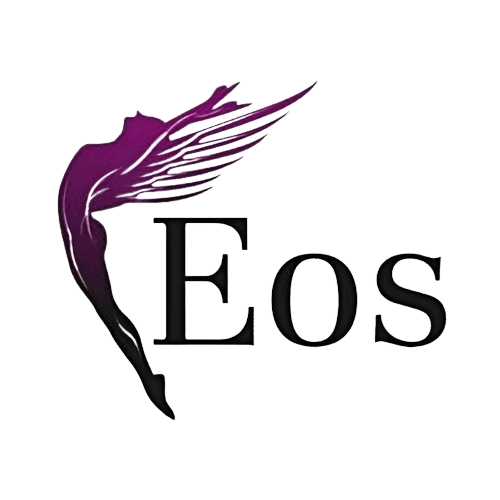Table of Contents
ToggleAnyone looking to expand to Japan and establishing a presence in a foreign jurisdiction would know that it’s a significant undertaking. If done correctly, it can open up immense opportunities and take your company to the next level. If poorly strategized or imperfectly implemented, it can drain resources, damage your brand, and potentially put your entire organization at risk.
For more than two decades the Eos team has been enabling companies to achieve fast, efficient, and sustainable expansion into Asia.
Many companies seeking to expand to Japan will first think of entity establishment. We are happy to support this step, but it may not be the best way forward for your business, at least at first. Why?
- Time The time it takes to fully investigate the costs, processes, and tax liabilities involved in the establishment and ongoing financial management of a foreign subsidiary can lead to delay in implementation. This can lose you the initiative in time-sensitive business.
- Compliance Risk Establishing an entity in a foreign country exposes you to unfamiliar processes and legislation—tax, reporting periods, labor laws, etc. may differ significantly from your home jurisdiction. Mistakes can cost your organization financially, and reputationally.
- Resource Drain The investment required to hire the local tax, payroll, immigration and other specialists, and back-office staff necessary to run a remote subsidiary is significant. Overcoming the language, culture, and time zone obstacles when expanding business into Japan make it all harder. The management needed to overcome all of this can divert critical resources and focus away from your core business objectives.
Eos outsourced employment solutions take away these headaches. Acting as your Employer of Record (EOR) in Japan we can hire your chosen staff into our own local entity, fast-tracking your market entry and enabling you to field staff in Japan within days. This business model is sometimes known as PEO (Professional Employer Organization) or GEO (Global Employer Organization).
You maintain control of the employees’ activities and manage their day to day work as usual. Eos takes care of their salaries, and local compliance—effectively serving as your local payroll and HR team. By doing so, we make it easier for you to expand to Japan.
Key features of our Japan employment solutions
- Fast market entry (onboard staff within days, guided by experienced professionals)
- Compliance (avoid local foreign exposure, services provided by local experts)
- Holistic Solution (end to end support, benefitting your company and your staff)
- Streamlined Process (reduces the cost, resources required to maintain a presence)
- Scalable (from a single employee to large teams, with fixed, easily forecast fees)
So who uses our PEO/EOR solutions to expand to Japan?
They may be companies who are:
- Testing the market
- Moving independent contractors to more compliant solutions
- Post-merger restructuring
- Hiring staff for short or fixed term
- Streamlining operations across multiple countries
- Fast-tracking market entry
- Making the first step before entity establishment
- Seeking to reduce overheads
- Dispatching staff to their client’s location
Our Services
- Structuring Advisory
- Human Capital Management
- Accounting and Payroll
- Tax Compliance Services
- Establishment of Local Entities
- Ad Hoc Consulting
Income Tax in Japan
One hurdle for businesses looking to expand to Japan is income tax. Income tax in Japan is complex. All income derived from work performed in Japan is subject to tax payment, regardless of payment location based on the reported monthly payroll. Eos will deduct the respective tax amount each month from local salary accordingly and remit as required to the Japanese tax authorities.
Note immigration residence status and taxation status may differ. For tax purposes an individual may be classified as a non-resident (generally a foreigner who has worked in Japan for less than 12 months – subject to a flat 20% tax on all Japan-based income), non-permanent resident (generally a foreigner who has worked in Japan with an employment contract for more than 12 months, taxed only on Japanese sourced income) or a permanent resident (generally Japanese nationals and foreigners who have lived in Japan for more than five of the past ten years, or who have applied for permanent residence status based on one of the fast track procedures recently available, taxed on Japanese and global income.).
Each year in December or January there will be an annual tax reconciliation taking into account total salary income, dependents, etc.
As their EOR, Eos will assist individuals to determine tax status and our team will ensure the correct amount is deducted from managed payrolls to ensure compliance.
| Total amount of taxable income for Non-Residents/Residents | Tax Rate | Amount of Deduction |
| Not more than ¥1,950,000 | 5% | None |
| Over ¥1,950,000 and not more than ¥3,300,000 | 10% | ¥97,500 |
| Over ¥3,300,000 and not more than ¥6,950,000 | 20% | ¥427,500 |
| Over ¥6,950,000 and not more than ¥9,000,000 | 23% | ¥636,000 |
| Over ¥9,000,000 and not more than ¥18,000,000 | 33% | ¥1,536,000 |
| Over ¥18,000,000 and not more than ¥40,000,000 | 40% | ¥2,796,000 |
| Over ¥40,000,000 | 45% | ¥4,796,000 |
*Note: These figures are accurate as of January 2021 and are to be considered a guideline.
For any non-salary income which must be reported in Japan, we can assist with the filing of individual tax returns, which must be filed no later than March 15th the following year.
Tip!
There are various tax mitigation structures available. Eos tax team are happy to talk you through this during initial discussions For example, although housing allowances are taxable as income in Japan, “company housing”, whereby the EOR company (Eos) holds the employee’s lease and makes monthly rental payments can render a percentage of this rent cost a tax-free benefit.

Resident
Resident tax is a tax paid to the municipality where you live in Japan. It consists of two types, prefectural and municipal taxes. The formula for calculating the residence tax is as follows.
Municipal Tax Amount = Income Rate+ Per Capita Rate
What is the income rate?
The amount to be paid according to the amount of income. Basically, the income amount of the previous year × 10% (6% municipal tax + 4% prefectural tax).
What is the per capita rate?
Amount paid by people living in the same local government regardless of their income. There are regional differences but is around 5,000 yen.
Standards and ranges for foreign workers to pay municipal tax
The resident tax applies to individuals with addresses in local governments regardless of nationality. Whether there is an address is determined is based on January 1 of that year. For example, foreign workers who have been working in Japan since February 1, 2019, but did not have an address in Japan as of January 1, 2019, will not be subject to 2019 residence tax.
In addition, the income rate for municipal tax is applied on all income earned in the year from January 1 of the previous year. In other words, for foreign workers who have no previous year’s income, it won’t apply.
Tip!
If an employee’s assignment is scheduled to finish in the early year consider ending the assignment in December in order to avoid resident tax for that year. 10% of income saved could be very considerable!
It is also important to note using the EOR model is advantageous to our corporate clients expanding business into Japan because corporate tax reporting obligations are unlikely to be triggered in Japan and permanent establishment issues may be mitigated, greatly reducing the resources and oversight needed for local operations.
Social Insurance in Japan
Japan has four different kinds of employer-mandated social insurances:
- Workers’ Accident Compensation Insurance
- Employment Insurance:
- Health Insurance and Nursing Care Insurance
- Employees’ Pension Insurance
When business expand into Japan, they need to keep in mind that enrolment is compulsory for all employees, with a portion of the costs paid by the, and some by the employer. As the client of the EOR, you would cover this employer portion, which would be added to our monthly invoices.
The total cost to an employer is around 16.24% of salary/bonuses for employees aged over 40 and slightly less at 15.375% of salary/bonuses for employees under 40, with specific ceilings based on individual conditions.
Eos is pleased to manage all social insurance requirements for our EOR employees.
Points to note :
Social insurance costs are based on annual income based on salary amount. Changes in income do not immediately result in changes of social insurance charges: In the event that salary increases or decreases for 3 months in a row, it will be adjusted. Particularly please note that this means even if an employee works a couple of days only in a month, the amount owed is the same, so many employers choose not to begin employment of new staff just before month-end.
Hiring foreigners – Immigration in Japan
When business expand into Japan, they may be looking into sending expatriates into the country aside from hiring locals. All foreigners working in Japan must have appropriate approvals from the Japanese immigration authorities. In some instance it may be possible to enter the country under a visa waiver program or visitor visa to participate in business meetings and preliminary research activities but these do not constitute permission to work.
Foreign nationals requesting work authorization in Japan must apply for and obtain a Work Visa prior to entering the country and beginning employment. Eos are happy to manage this entire process for you. If the new employee already has a valid and suitable work visa, we can file a simple “change of employer” notification within two weeks of their start date.
If a new work visa is required, the first stage is to obtain a Certificate of Eligibility (CoE) from the Immigration Bureau in Japan. This can take 4-8 weeks, but Eos is eligible to receive expedited processing, which usually means 2-4 weeks. Various categories exist according to which the immigration authorities evaluate applications, including, but not limited to:
- Intra-Company Transferees
- Engineers/Specialists in Humanities/International Services
- Business Managers
- Highly Skilled Professionals
Eos will guide you about which type is best suited to the job description and company objectives for the new employee. Upon approval, a CoE is issued directly to Eos in Japan and forwarded to the employee in their country. They can then obtain the Work Visa at a Japanese Consulate with jurisdiction over their place of residence. The work visa is usually granted for only one year at first application but can be up to 3 years. The CoE is valid for three months and holders must travel to Japan within three months of its issuance.
Foreign nationals with Work Visas will apply for admission to Japan at the Japanese port of entry. Upon approval by the border official, all long-term visa holders (more than three months) will be issued a Residence Card at most major airports. The Residence Card will contain all the basic points of identification, a photograph, and any restrictions on the foreign national’s work activities.
There is a relatively new, points-based visa type ( Highly Skilled Foreign Professional Visa ) which if eligible, can be granted for up to 5 years, and may offer expedited Permanent Residence, as well as other advantages. Please refer to the Japanese Government’s website.
REGISTRATION
Employee: Foreign nationals that receive a Residence Card at the port of entry must register at the local municipal office within 14 days once they have a permanent address. They must also report any subsequent address changes to the local municipal office within 14 days of each move. Residence Cardholders do not have to apply for a re-entry permit prior to leaving Japan, provided they return within one year.
Employer: Companies expanding business into Japan must notify the Labor Department upon the hiring or termination of each foreign employee.
QUOTAS
Japan does not have any legal requirements regarding the employment ratios of Japanese nationals to foreign nationals. Additionally, there are no labor-market testing requirements for Japan.
IMMIGRATION CONTRACT REQUIREMENTS
In most cases, Work Visa applicants are required to have local employment and are required to be on a Japanese company’s payroll.
EMPLOYER COMPLIANCE
Employers found encouraging or practicing illegal employment can be fined up to JPY 3 million and/or imprisoned for up to three years. Foreign employers are subject to deportation if they assist a foreign national in illegally obtaining a certificate or a seal of verification for landing. For this reason, Eos strictly adheres to government protocols and will provide all compliance advice required in this regard to make expanding business into Japan as worry-free as possible.
For all Work Visa categories, employers are required to maintain accurate records and possess copies of all documents for foreign employees including a passport; relevant visa; proof of the capacity in which the foreign national was hired; and a copy of the employee’s work contract and job description.
ENTITY REQUIREMENTS
Japanese companies employing foreign nationals must be legally registered as a corporate entity. The registration applies to local hires, intra-company transferees, and seconded employees.
Japanese immigration is complex and may be somewhat a daunting process for a business wishing to enter the Japanese market. Eos is able to provide an end-to-end immigration solution. We have a team of immigration experts that is able to arrange the appropriate employment visa. As identified staff are considered our employees under the EOR agreement we are permitted to sponsor the selected individuals (and accompanying family members). We manage the entire process and are responsible for ensuring immigration compliance is maintained with the various government entities at all times.
After visa approval, the individual can perform their designated duties to your business and is able to assist your company to expand operations and increase profitability in Japan.
Tip!
It used to be possible to enter Japan on a visa waiver or business visa, and change status whilst in-country to work visa. Recently this is rarely approved, however, so it is not recommended.
Newly established companies may find visa applications take longer to process, and have a higher chance of rejection. In cases where the Representative Director of an entity is not a Japanese resident, the chances of rejection are even higher. This is one advantage of using a PEO / EOR / GOE outsourced employment solution.

Hiring and Termination of staff in Japan
Employees in Japan receive significant government-regulated labor protections. It should also be noted that cultural norms of lifetime employment often play an integral role in the employer/employee relationship.
Employment contracts must be provided to an employee and with certain terms included. Eos will provide a standard template, compliant with local labor law. We can revise this to include certain terms and conditions at your request, as long as they are acceptable under Japanese law. It is possible to have a fixed-term contract, however, if the fixed term is renewed to reach beyond five years the employee is permitted to demand a contractual change to open-ended.
Employers with ten or more staff are required to instate ‘Work Rules’ and file them with the Labor Standards Inspection Office. Work rules will generally include wages, working hours, annual leave provisions, termination procedure and dispute resolution.
An employee is usually required to provide notice of 30 days to cease employment (this may differ according to terms of a contract). Employers may also include in a contract a notice period of usually 30 days to dismiss an employee or provide payment in lieu of notice. However, termination by an employer is extremely complex and often time-consuming ( there is no “at-will termination permitted in Japan ) . Issues that would warrant termination in many countries may not justify termination in Japan. Unjustified termination may result in significant termination payments, and possibly reinstatement with back pay. Note for those employees that have been employed on a fixed-term contract for a period less than five years it is usually reasonably straightforward to end an employee/employer relationship at the end of the fixed contract, but if terminating early, payment of up to the entire contract period may be required.
Eos are experts in Japanese labor matters and will provide guidance during onboarding and offboarding processes.
NOTES:
Employees in Japan enjoy significant protection under Japanese employment law and through well-established court precedents. Guidelines and notices issued by the Ministry of Health, Labour and Welfare (MHLW) are also employee-friendly. In addition, cultural norms and societal expectations such as the traditional concept of ‘lifetime employment’ play important roles in the employer/employee relationship. However, in general, Japanese people are not readily litigious and if handled carefully, the involvement of legal professionals can usually be avoided. For this reason, any termination of employment must be handled very carefully and with respect.
Traditionally in Japan, full-time employment is considered more prestigious and stable than fixed-term employment. For this reason, a fixed-term contract may make it harder to attract the best talent.
Other things to take note when expanding business into Japan
- Public holidays – 16 days
- Annual leave – new employees are eligible to receive a minimum of 10 days paid leave after their first 6 months of employment, with leave increasing annually by at least one day per year worked until leaves reached a maximum of 20 days. It is at the employer’s discretion regarding leave.
- Maternity leave – Expectant mothers receive six weeks of paid leave pre-birth and eight weeks of paid leave post-birth
- Paternity leave – Eligible mothers or fathers receive three weeks partly paid leave up the child turns three
- Sick leave – there is no mandated sick leave in Japan
- Average working week – 40 hours
- The minimum wage in Tokyo ( this varies slightly by location ) – ¥1,013JPY per hour from October 1, 2020
- Payroll – salary must be paid once a month
- Pay slip – must be provided online, PDF or paper formats
Are you ready to take your next step to expand to Japan?
The Eos team will discuss your goals with your management team and help you define your strategy in a local context. We can then provide a PEO/GOE proposal with bespoke services aimed at getting you where you want to be.
Once you’re ready, your staff will be onboarded with locally compliant employment contracts customized with your preferred terms and conditions. Any visa issues for your ex-pats and their dependents will be managed by Eos immigration professionals to ensure a smooth start to their new deployment.
From there, we will manage the payroll, tax, and benefits like any employer, based on a monthly consolidated invoice for salaries, expenses, and services, so you can get on with your primary goal – growing your business !
Please note that the information provided is for your general guidance only, and Eos accepts no liability for its contents. It is important to seek professional advice for specific questions that affect your individual situation
Featured photo by David Edelstein on Unsplash






